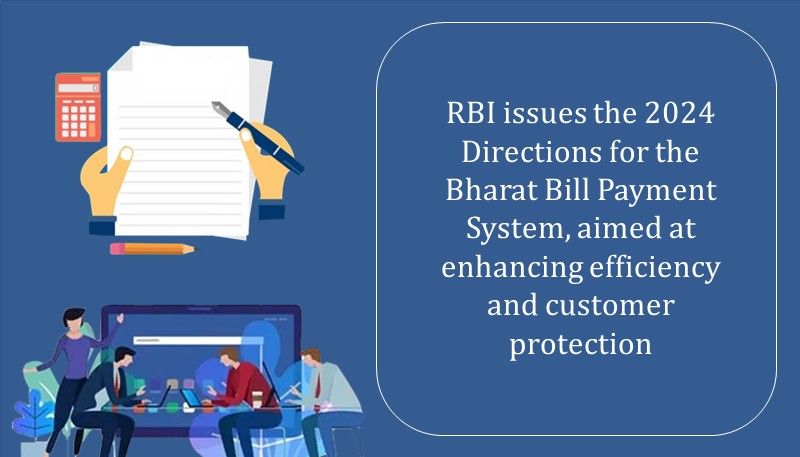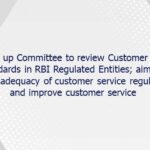The Reserve Bank of India (“RBI”) has issued the Reserve Bank of India (Bharat Bill Payment System) Directions, 2024 (“2024 Directions”), superseding the existing regulations governing the Bharat Bill Payment System (BBPS) as outlined in the Statement on Development and Regulatory Policies dated 8th June 2023. These new Directions aim to streamline bill payment procedures, enhance customer protection among other changes. The 2024 Directions will come into effect from 1st April 2024.
Applicability:
These Directions apply to
- NPCI Bharat Bill Pay Limited (NBBL – a wholly owned subsidiary of National Payments Corporation of India); and
- All Bharat Bill Payment Operating Units (BBPOUs)
Key Highlights:
- BBPOUs serve as the System Participants in Bharat Bill Payment System (BBPS), functioning as either a Biller Operating Unit (BOU) or a Customer Operating Unit (COU), or both.
- A BOU is responsible for onboarding billers onto the BBPS platform for bill collection, directly or through biller aggregators.
- A COU provides customers with interfaces (physical/digital) for bill payments, directly or through affiliated agent institutions.
- BOUs ensure adherence to due diligence requirements outlined in the Guidelines on Regulation of Payment Aggregators and Payment Gateways. They also comply with any additional due diligence requirements specified by the National Bank of Bharat (NBBL) for specific biller categories and conduct due diligence checks on billers onboarded through aggregators.
- COUs facilitate customer interactions with BBPS, ensuring access to all enlisted billers and establishing dispute resolution mechanisms. They are also accountable for the actions and operations of their agent institutions, ensuring compliance within the BBPS framework.
- Authorized BBPOUs can participate in BBPS as Operating Units.
- Banks and non-bank Payment Aggregators (PAs) intending to operate as BBPOUs do not require separate authorization but must notify the DPSS, RBI, Central Office before commencing operations.
- Non-bank BBPOUs must open an escrow account with a Scheduled Commercial Bank exclusively for BBPS transactions.
- Non-bank BBPOUs operate as Payment Aggregators (PAs) when collecting funds from customers or settling funds with onboarded billers. For escrow account maintenance purposes, the payment system operated by the BBPOU will be deemed a ‘designated payment system’ under Section 23A of the PSS Act, 2007.
Additionally, there are other regulatory requirements prescribed for BOUs and Operating Units, including eligible credit and debit in escrow accounts, methods for dealing with failed transactions, and provisions for dispute resolution between customers and billers. Furthermore, regulatory requirements for the Bharat Bill Pay Central Unit (BBPCU) and Bharat Bill Payment System (BBPS) are comprehensive and significant.
For further details, please refer to the hyperlink below.
Source: Reserve Bank of India





